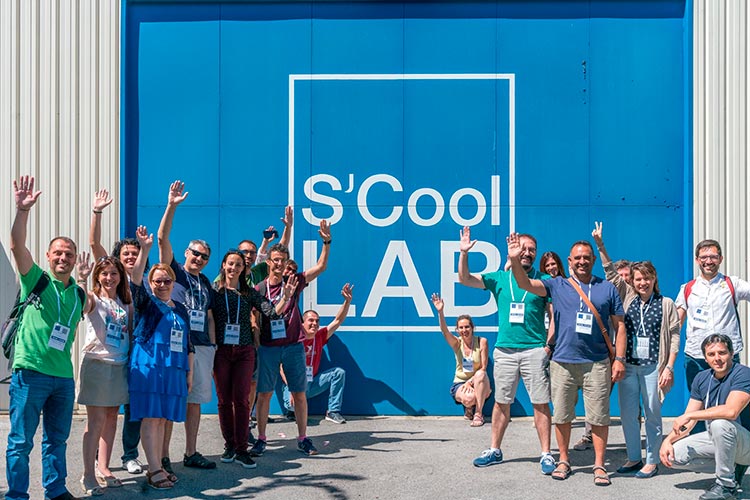Science teachers can expand their training at CERN due to Aguas de Torremolinos and the Aquae Foundation
The aim is to train teachers in the latest scientific advances so that, when they go back to their classrooms, they can encourage interest in STEM careers among their students
For the third consecutive year, Aguas de Torremolinos and the Aquae Foundation, which belongs to Hidralia (a partner company in the joint venture), have promoted the Teacher Training Programme, through which science and technology teachers who work in secondary education and vocational training in Andalusia can participate from 23 to 28 June in a high-level training course taught at CERN (the European Organization for Nuclear Research) in Geneva (Switzerland). The deadline for enrolling is 22 April.

The programme, which will provide grants for 20 lecturers throughout Spain, has two aims: firstly, to serve as a refresher in theoretical and technical knowledge for the grant holders; and, secondly, to provide tools so that this knowledge can be applied in the classroom, to encourage scientific careers among students and, as a result, the choice of pursuing STEM (science, technology, engineering and mathematics) degrees. 'The programme is designed to strengthen knowledge of sciences in secondary education and professional training, and offers teachers a great opportunity to enhance their skills', explained Mariola Urrea, president of the Aquae Foundation's Strategy Council.
For a week, participants in the Teacher Training Programme 2019 will attend classes and conferences, visit exhibitions and participate in workshops where they will hear about the latest developments and discoveries made at CERN, the world's largest particle accelerator for research into fundamental physics, which is the search for the origin and basic constituents of matter.
In this century, the number of university enrolments for STEM disciplines has dropped 25% in Europe and 40% in Spain. However, the demand for professionals with this type of qualification in the European Union will be around 14% by 2020, compared to 3% general demand for professionals, according to the European Centre for the Development of Vocational Training (Cedefop).
In addition to the traditional STEM degrees such as medicine, computer science or mathematics, new qualifications are emerging related to data processing (big data), virtual reality and augmented reality, robotics, the Internet of Things and bioinformatics, which are qualifications required by an increasing number of companies. This project is the result of collaboration that began in 2017 between the CERN & Society Foundation and the Aquae Foundation, the first Spanish institution to become involved with the CERN & Society Foundation since its foundation in 2014.
Founded in 1954, CERN is currently comprised of 22 member states and has eight associate states, six observers and 57 collaborating companies. Spain joined the centre in 1961, but left eight years later. In 1983, Spain once again became a member state. CERN research has enormously enriched human knowledge, with progress ranging from medical applications for cancer treatment or image diagnosis, to the development of the World Wide Web (www) or finding the Higgs boson, a historical milestone for particle physics.
